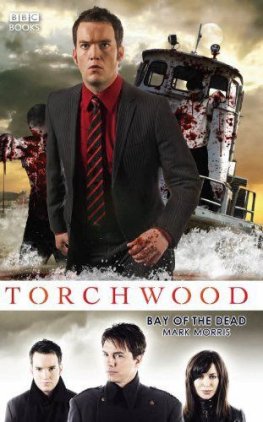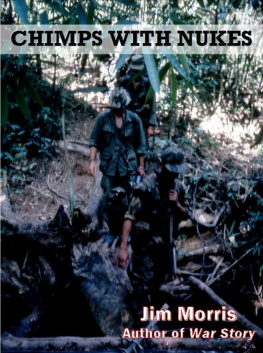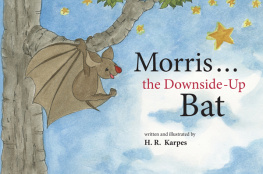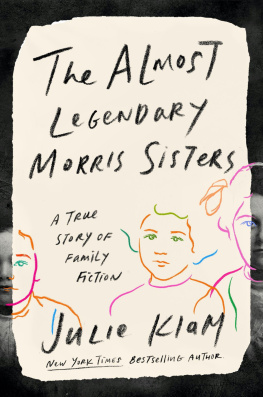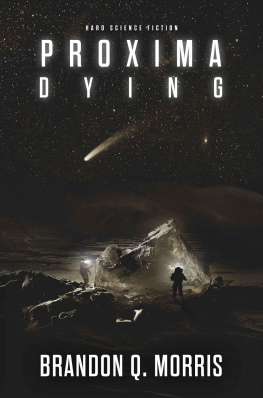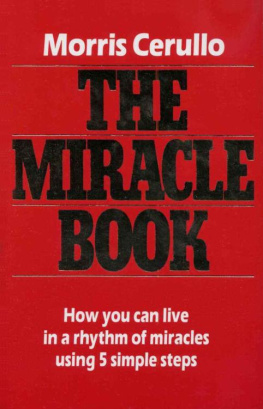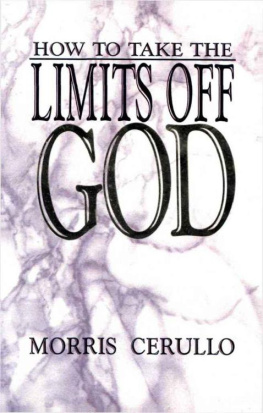Contents
Guide
Advance Praise for
We Were the Morris Orphans
Kathi Morris book is a must-read for anyone who cares about children and, particularly, those in our child welfare bureaucracy. Hers is a timeless tale of children damaged by the acts of adults charged with their wellbeing. Timeless because the convenience of courts and caretakers all too often take precedence over children in need of help. Because I spent decades in court as a Child Welfare Law Specialist, this narrative resonates. Judges, attorneys, caregivers, and relatives need this story. Kathi offers hard-won advice and information to every person with a passion to protect kids.
W. Richard Bailey, Esq., CWLS
Kathi Morris and her siblings lived a nightmare no one, regardless of their age, should have to endure. We Were the Morris Orphans is a poignant story of unspeakable loss, resilience, faith, and love.
Bonnie Hearn Hill, Author of The River Below
In her long-awaited memoir, Kathi Morris tells the rest of the story of the ten Morris orphansthrough raw emotions, heartbreaking recollections, and unexpected moments of humor. Her book will touch your heart and give you faith in the resiliency of the human spirit. Ultimately, it is a message of hope that you are stronger than you think.
Linda Gannaway, Ed.D., Speaker, Coach and Author of The Power of Life Lessons
Orphaned at seventeen, Kathi Morris tells the story of how she tried to cope with the deaths of her parents, the breakup of her family, and the loss of two of her brothers. We Were the Morris Orphans is the heartbreaking, compelling story of a family torn apart and a courageous teenagers struggle to survive.
Hazel Dixon-Cooper, Author of Confessions of a Fat Cosmo Girl: How I Lost 122 Pounds & Kept It Off & How You Can Too
A POST HILL PRESS BOOK
ISBN: 978-1-63758-126-1
ISBN (eBook): 978-1-63758-127-8
We Were the Morris Orphans:
4 Brothers, 5 Sisters & Me
2021 by Kathi Morris
All Rights Reserved
Cover art by Cody Corcoran
All people, locations, events, and situations are portrayed to the best of the authors memory. While all of the events described are true, many names and identifying details have been changed to protect the privacy of the people involved.
All typographical errors in letters, articles, and any other quoted material were maintained for authenticity.
No part of this book may be reproduced, stored in a retrieval system, or transmitted by any means without the written permission of the author and publisher.

Post Hill Press
New York Nashville
posthillpress.com
Published in the United States of America
To my parents Robert Gene and Joyce Angela Morris
Your names will live forever on these pages and in the hearts and souls of your children
In Memory of CJ Collins
It is not my intent to defame anyone; rather,
to tell my truth and that of my siblings.
Y ou might remember me from my fifteen minutes of fame.
On July 2, 1968, a drunk driver killed my parents, orphaning us ten childrenaged three to seventeen. We lived in Madera, a small rural town in California where everybody knew everybody. Our parents left us with strong family values but little more. With no estate or relatives willing to adopt us, we became wards of the court.
Our plea to not be separated prompted the tight-knit Madera community to establish a trust fund with Bank of America to Keep the 10 Morris Orphans Together. While donations trickled in at a slow and steady pace, the Madera Tribune reported daily on the funds status.
Everything changed when CBS Evening News aired our plight on national television. Articles titled Morris Case Familiar in all Parts of the Country and 10 Orphans Seek to Stay as Family were reported in newspapers worldwide. Fueled by the publicity, the trust fund skyrocketed. Previously disinterested relatives engaged in a custody battle while offers to adopt us poured in from kindhearted strangers.
On August 28, 1968, a judge, one solitary man, decided our fate, awarding custody of the ten of us to our aunt. When CBS Evening News with Walter Cronkite announced that we would remain together, the world rejoiced. Little did they know for two months leading to that decision, inept and calloused professionals and money-hungry, fame-seeking adults flamed our pain. Or that within months of that decision, we were separated, sent to foster homes, and abused.
Throughout my life, upon hearing parts of my life story, friends and strangers alike would say, You should write a book! My response was always, Why? Who would want to read it? Everybody has a story. The common reply was, Yes, but not like yours! I ignored the idea until I heard a sermon at Mass. Each of you has God-given gifts, said the priest. When you die, God will hold you accountable for them. What is your gift?
Struck by the gravity of his words, I thought, hmmmwhat is my gift? Writing? Everyone says they enjoy reading my cards and letters. At that moment, I flashed on the countless number of people who had told me to write a book and how I had dismissed them.
I love the movie The Wizard of Oz. In the beginning, Dorothy asks the Munchkins how to find the Land of Oz. In either a high-pitched or low-pitched voice, they instruct her to Follow the yellow brick road! Suddenly, I had a visual of exactly thatonly the Munchkins were all the people who had said, You should write a book!
As I sat in church reflecting, it became clear that telling my story was no longer a choice. I had an obligation, commissioned by God.
My story begins with a tragic night in 1968. I spent years reliving my past, researching documents, and conducting interviews to record details as accurately as possible. I found myself often recanting through the memory or perception of a wounded teenager. Most of the adults who contributed to my suffering have died. Strengthened and fortified by years of adversity, I forgave them or moved past the pain long ago, but the memories live on. Some in my yesterday. Some in my today.
I am the oldest of the ten Morris orphans. This is my story. This is our story.

T uesday, July 2, 1968, was another triple-digit scorcher in Maderaa tiny farmland town in central California. The screen door served as our air conditioner, allowing me a full view of the advancing policeman. Dusk provided me with enough fading sunlight to observe the cops long strides slow to a cautious trudge as he approached our home.
My nine siblings and I were watching The Jerry Lewis Show on the black and white television tucked in the corner beside the front door. When the young officer peered through the screen, his subdued expression changed to bewilderment. Gawking at him were ten kids laying across the tattered furniture and thin worn carpet. Years later, I understood his look was not of bewilderment, but rather, anguished distress. Sent on a mission, he could not know the gravity of what awaited him. His last step must have propelled him into his worst nightmare. I was minutes away from disintegrating into mine.


